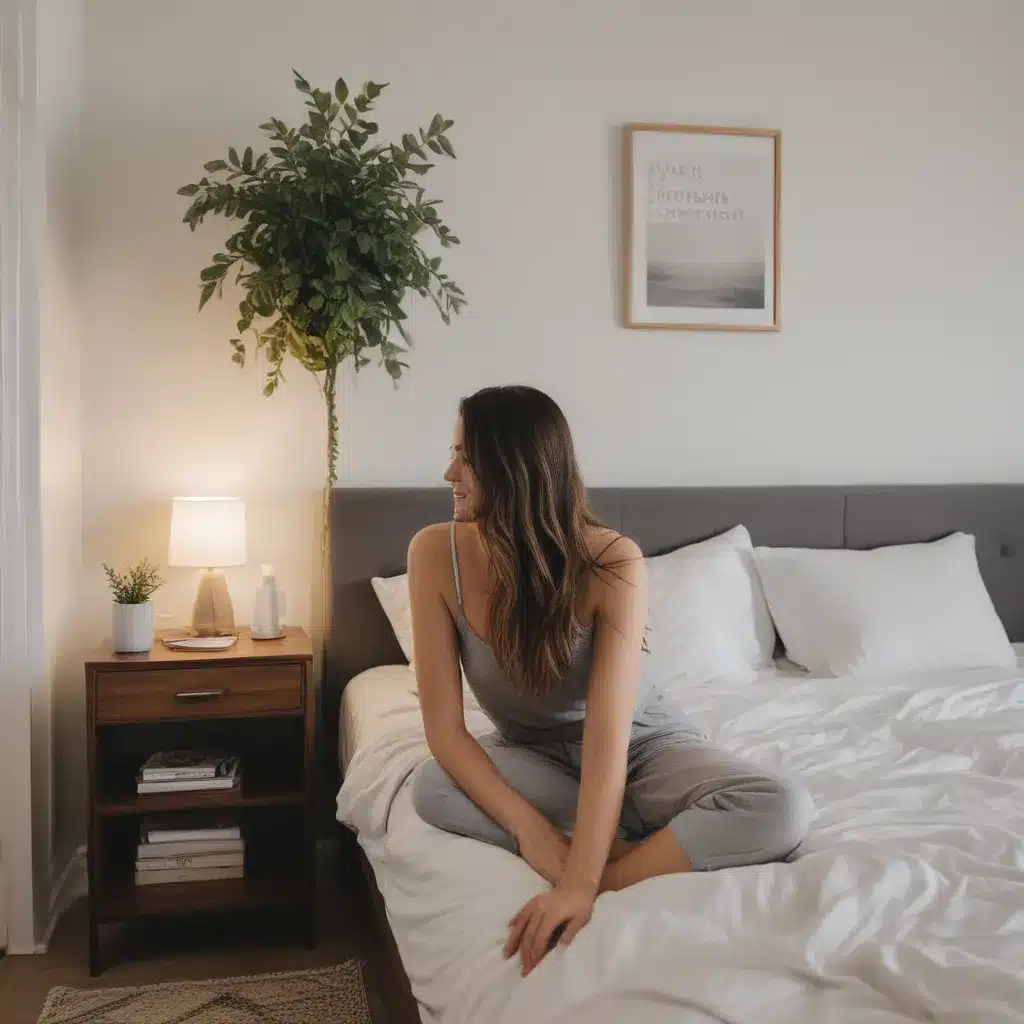
As someone who has struggled with sleep issues in the past, I know firsthand how important it is to have a consistent, calming bedtime routine. When I was living in the bustling city of Seoul, South Korea, I found that creating a relaxing nighttime ritual was essential for getting the high-quality rest I needed to recharge and tackle the next day.
Establishing a Sleep-Friendly Environment
One of the key components of my nighttime routine was setting the stage for a good night’s sleep by creating a sleep-friendly environment. I learned that the temperature, lighting, and noise levels in your bedroom can have a big impact on your ability to fall and stay asleep.
According to the Sleep Foundation, the optimal bedroom temperature for sleep is between 65°F and 70°F. I used a small space heater and fan to maintain this ideal range throughout the year.
Lighting is another important factor. I made sure to dim the lights and avoid using bright overhead fixtures in the last hour before bedtime. Healthline recommends using warm, soft lighting like candles or lamps with dimmers to signal to your brain that it’s time to wind down.
As for noise, I found that a white noise machine or app worked wonders for blocking out disruptive sounds from the busy streets of Seoul. The gentle, consistent hum helped me tune out any outside disturbances and fall into a deep, restorative sleep.
Prioritizing Relaxation
With the right sleep environment in place, I then focused on incorporating relaxing activities into my nighttime routine. One of my go-to wind-down rituals was taking a warm bath. The Sleep Foundation explains that this can induce sleepiness by mimicking the natural drop in body temperature that occurs as we prepare for slumber.
I also found that practicing light yoga or gentle stretching helped calm my mind and body. It was the perfect antidote to the mental and physical stresses of the day. And speaking of stress, I made sure to avoid anything too stimulating in the hours before bed, including work, intense exercise, and screen time.
Instead, I would curl up with a good book or listen to soothing music. MadeWithLemons recommends trying out a guided meditation or visualization exercise as well. I personally loved using the Calm app for its vast library of sleep-inducing stories and soundscapes.
Fueling My Body for Rest
In addition to creating a relaxing environment and winding down mentally, I also paid close attention to my pre-bedtime eating and drinking habits. I learned that certain foods and beverages can impact sleep quality, for better or for worse.
Heavy, greasy, or spicy meals right before bed can lead to discomfort and disrupt sleep. So I made sure to have a light, easy-to-digest snack like yogurt, fruit, or whole grain toast instead. The Sleep Foundation suggests avoiding caffeine and alcohol as well, since they can interfere with the natural sleep-wake cycle.
I did, however, find that certain sleep-promoting foods and drinks could be beneficial. For example, a small bowl of cherries or a cup of chamomile tea helped me relax and drift off more easily. Healthline lists other slumber-boosting options like kiwi, nuts, and non-caffeinated herbal teas.
Sticking to a Consistent Schedule
Finally, one of the most important aspects of my nighttime routine was maintaining a consistent sleep schedule, even on weekends. I found that going to bed and waking up at the same time each day – yes, even on Saturdays and Sundays – helped regulate my body’s internal clock and natural sleep-wake cycle.
The Sleep Foundation recommends aiming for 7-9 hours of sleep per night and sticking to a routine that allows you to get the recommended amount. For me, that meant being in bed by 11 pm and waking up around 7 am, no matter what.
Of course, it wasn’t always easy to maintain this schedule, especially when I was out enjoying Seoul’s vibrant nightlife. But I quickly learned that prioritizing sleep was crucial for my overall health, productivity, and quality of life. And the more consistent I was with my nighttime routine, the easier it became to fall and stay asleep.
Finding What Works for You
Ultimately, the key to creating a relaxing nighttime routine is to find what works best for you and your unique sleep needs. Everyone is different, so don’t be afraid to experiment and find the perfect combination of environmental, mental, and physical elements that help you drift off to dreamland.
And don’t forget to be patient and forgiving with yourself. Slip-ups will happen, but the important thing is to get right back on track and keep building those healthy sleep habits. Before you know it, you’ll be enjoying the restorative power of a good night’s sleep, just like I did during my time in Seoul.
If you’re ready to start your journey to better sleep, be sure to check out the Hotel Stay Inn Seoul website for more tips and resources. Sweet dreams!

